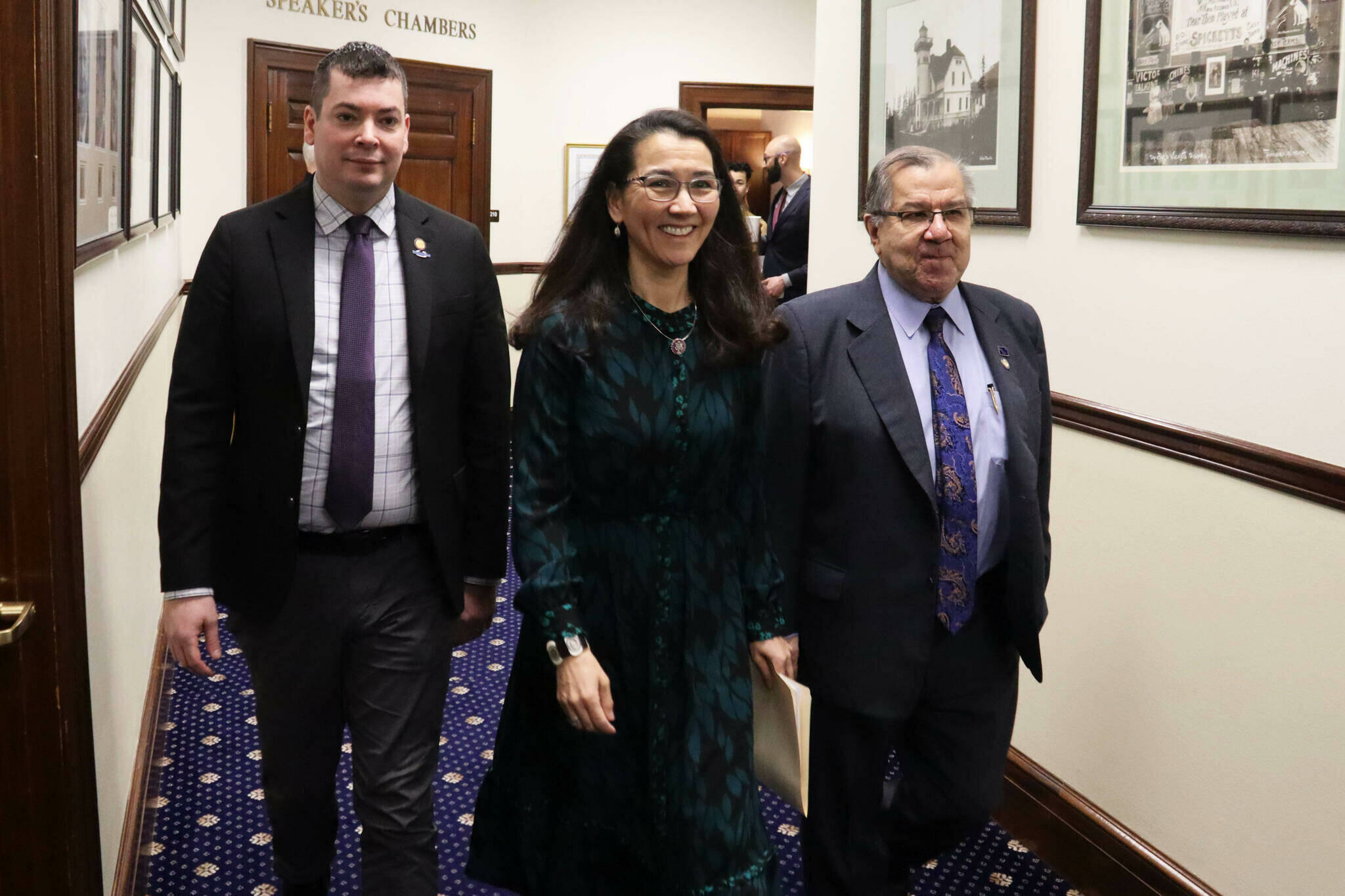Teamwork makes the dream work. That was the theme of U.S. Rep. Mary Peltola’s annual address to the Alaska Legislature, delivered Monday in Juneau.
The one-term lawmaker — who is up for reelection this year — said collaboration between stakeholders has helped produce wins for Alaska’s fisheries and the state’s economy, and is the way forward for issues still facing the state.
It was collaboration among Alaskans, she said Monday, that prompted the federal government’s intervention in the proposed $24.6 billion merger of Albertsons Companies, Inc. and Kroger Company, which Alaska’s Congressional delegation and 24 state lawmakers have opposed. The companies are the parents of Safeway and Fred Meyer, respectively.
The companies last September announced their proposed merger, through which they would close 413 store locations nationwide including 14 in Alaska. The Federal Trade Commission on Monday announced that it was suing to block the proposed deal, saying it would eliminate competition between the two companies and lead to higher prices, lower quality products and get rid of competition for workers.
As reported by the Anchorage Daily News, the stores most likely to be closed by the merger would be Carrs Safeway stores operating near Fred Meyer stores, such as in Soldotna.
Peltola said Monday that engagement by Alaskans with the topic helped make change.
“We all banded together to host unprecedented listening sessions so the FTC could hear the concerns of regular Alaskans,” she said. “Today, the FTC informed me that it was those listening sessions, hearing from regular people like the have never heard before, that not only convinced them to stop this merger, but it also created a new model for how the FTC will engage with constituents when making big decisions that affect them.”
Related to food security, Peltola highlighted the November 2023 founding of the bipartisan American Seafood Caucus, which brings three other U.S. Representatives from all of America’s coastlines together to prioritize production of domestic seafood. The work of that group, she said, is connected to what she called the “trend” of Alaska’s declining fisheries.
“I can’t imagine raising children in an Alaska where the rivers are empty,” she said. “The decline of Alaskan fisheries is a trend years in the making and it will take years of hard work to fully reverse.”
Peltola said she, Sens. Lisa Murkowski and Dan Sullivan are “very committed to beefing up” federal research dollars for Alaska’s fisheries. Asked specifically whether she would support more federal resources for research into declining king salmon runs in the Kenai and Kasilof rivers, Peltola said people know that declining runs are a problem without science backing it up.
“We don’t need to wait for science to tell us this is a problem, but we do need science and answers that Western science has within it to help us course correct,” she said.
Alaska, she said, isn’t as competitive as other states, like Washington and Oregon, when it comes to federal research dollars, but that there should also be more money available for that research generally. In her address, she pointed to the National Oceanic and Atmospheric Administration’s review of its national standards of fisheries management as being “encouraging” fisheries news.
Peltola in the same address also announced her plans to convene a “summit of Alaskans” who will study out-migration in Alaska and emphasized the importance of securing Alaska’s energy future through projects like ConocoPhillips’ Willow project.
• Reach reporter Ashlyn O’Hara at ashlyn.ohara@peninsulaclarion.com. This reporting from the State Capitol was made possible by the Alaska Center for Excellence in Journalism’s Legislative Reporter Exchange.

